A woman stands on rubble to talk to her friends after a night of clashes between protesters and security forces in Srinagar as the city remains under curfew following weeks of violence in Kashmir: photo by Cathal McNaughton / Reuters, 21 August 2016
A
member of the security forces patrols a street after a night of clashes
between protestors and security forces in Srinagar as the city remains
under curfew following weeks of violence in Kashmir: photo by Cathal McNaughton /
Reuters, 21 August 2016

Despite strict curfew for the 42nd day, #Kashmir protests continue. How can you police a thought?: image via Sameer S. Bhat @sameerft, 19 August 2016
- Uzma Falak: One dies
- One dies
- The other is born
- They only give us numbers
- But poets hate numbers
- And in our country we are all poets
- of loss
- of memory
- of madness
- We know the pain of erasure.
- We, the poets of persistence.
- We, who outran our destiny.
- We, who cradle the ache of an unsung longing, a lingering history.
- We, who bear the burden of outliving our children.
- We, who survived a genocide of colours, a massacre of language.
- We, who enwomb within us evanescence.
- We, who have tricked forgetting.
- We, within whom flows a dark river of impossible love.
- We, the wandering minstrels of hope. We the balladeers of dawn. We the elegists of night. We the bards of loss.
- "One dies...": Uzma Falak, Srinagar, via DailyO, 17 August 2016

Solving #Kashmir issue by raising #Balochistan won't work | @KamalChenoy: image via DailyO @DailyO, 20 August 2016
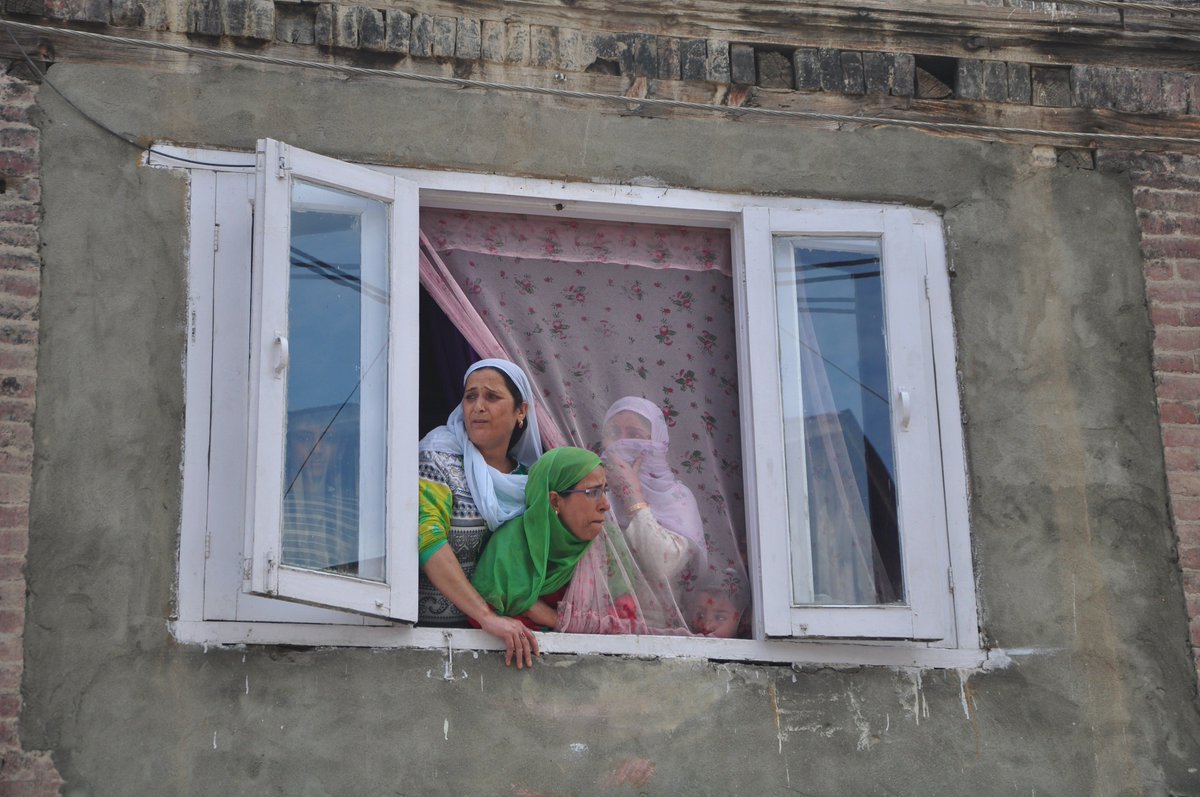
Watch 'Kashmir: Behind The Rage', a ground report from the valley by @maya206 at 10.30 pm on @ndtv: image via INDIA MATTERS @IndiaMatters, 12 August 2016

Watch 'Kashmir: Behind The Rage', a ground report from the valley by @maya206 at 10.30 pm on @ndtv: image via INDIA MATTERS @IndiaMatters, 12 August 2016

Watch 'Kashmir: Behind The Rage', a ground report from the valley by @maya206 at 10.30 pm on @ndtv: image via INDIA MATTERS @IndiaMatters, 12 August 2016

Watch 'Kashmir: Behind The Rage', a ground report from the valley by @maya206 at 10.30 pm on @ndtv: image via INDIA MATTERS @IndiaMatters, 12 August 2016
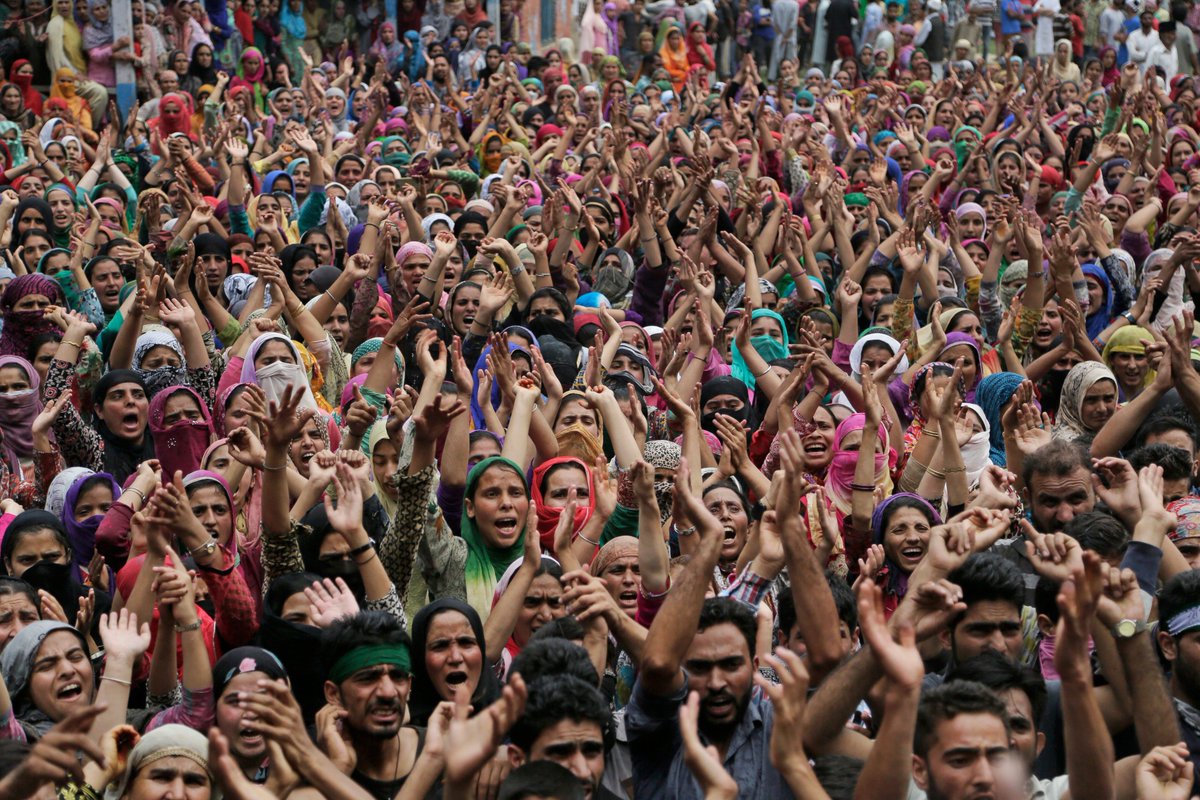
Government forces in Kashmir shoot 5 civilians and injure at least 15 others as anti-India protests continue: image via AJ+ @ajplus, 16 August 2016

Government forces in Kashmir shoot 5 civilians and injure at least 15 others as anti-India protests continue: image via AJ+ @ajplus, 16 August 2016

Government forces in Kashmir shoot 5 civilians and injure at least 15 others as anti-India protests continue: image via AJ+ @ajplus, 16 August 2016

Government forces in Kashmir shoot 5 civilians and injure at least 15 others as anti-India protests continue: image via AJ+ @ajplus, 16 August 2016

It isn't "inciting hatred" against state to discuss Indian security-force abuses in Kashmir: image via Kenneth Roth @KenRoth, 19 August 2016

When she holds me in her arms, the fire simmers inside me. Our Women, Steel Magnolias. #Kashmir #KashmirUprising: image via faysal @_Faysal, 19 August 2016

Driving in Curfewed Kashmir in what can be called a windowpanes-less car!: image via Faraz Yaseen @FarazYaseen, 21 August 2016

Indian troops go berserk in Batamaloo and Mandir Bagh. Ransack homes and break public property. #Kashmir: image via faysal @_Faysal, 21 August 2016

Indian troops go berserk in Batamaloo and Mandir Bagh. Ransack homes and break public property. #Kashmir: image via faysal @_Faysal, 21 August 2016

Indian troops go berserk in Batamaloo and Mandir Bagh. Ransack homes and break public property. #Kashmir: image via faysal @_Faysal, 21 August 2016

Indian troops go berserk in Batamaloo and Mandir Bagh. Ransack homes and break public property. #Kashmir: image via faysal @_Faysal, 21 August 2016

Guess who have damaged more vehicles, public property and private property? Your very own stone pelters. #Kashmir: image via faysal @_Faysal, 20 August 2016

J&K: Tight security put in place in #Srinagar and across Valley to maintain law and order.
Photo: PTI: image via All India Radio News Verified account @airnewsalerts, 17 August 2016
Lal Chowk in #Srinagar and the local newspapers filled with pictures of dead boys: image via Sameer Yasir @sameeryasir, 17 August 2016

#Indian Troops martyr four youth in occupied #Kashmir, as massive pro-freedom rallies continue across the valley: image via PTV World @WorldPTV 21 August 2016
Kashmir: why talk to India? Munir Khan, Dawn, 21 August 2016
Following the extensive discussions at the recent Pakistan envoys’ conference, Pakistan proposed a ‘separate’ dialogue on Jammu and Kashmir to India.
As expected, India promptly interposed preconditions for the talks, even more onerous than in the past. Pakistan’s counter -- that the talks would be strictly on the basis of the UN resolutions on Kashmir -- indicates that the proposal for talks was largely a tactical move to expose India’s obduracy.
It would have been unseemly to hold talks with India when it has just killed over 70 Kashmiris like Burhan Wani and blinded hundreds, including small children, and is continuing with its campaign of oppression. A ‘separate’ dialogue on Kashmir will not stop India’s repression. On the contrary, talks would have enabled India to deflect world attention from its atrocities by focusing on ‘terrorism’ and could have defused this latest Kashmiri revolt.
During Kashmir’s last major revolt in the 1990s, Pakistan refused talks with India unless it agreed to substantive discussions on the Kashmir dispute. Detailed proposals and counter proposals were exchanged prior to and following the foreign secretary-level talks in 1994. Pakistan called for implementation of the UN resolutions; India obfuscated. But, its foreign secretary indicated a readiness for a solution based on ‘autonomy plus’ (that is, more than provided in Article 370 of the Indian constitution) and ‘independence minus’ (that is, short of full statehood).
Obviously, since then, the ‘correlation of forces’ have moved negatively against Pakistan and the Kashmiri people. The Kashmiri freedom struggle was infiltrated and corrupted by India’s intelligence agencies, and then brutally suppressed by its half-a-million-man occupation force. After 9/11, and the attack on the Indian parliament, Pakistan was obliged, under heavy US pressure, to undertake not to allow its territory to be used by ‘terrorists’. As Islamabad’s support to the Kashmiri struggle ended, some ‘jihadist’ groups turned against Pakistan or went ‘rogue’. India now portrays any resistance in Kashmir as terrorism. Its powerful Western allies now accept this equation, enabling India to act with complete impunity in suppressing Kashmiri demands for azadi (freedom).
There is thus no point in talks with India at this time. It will not resolve the dispute; it could demoralise the Kashmiris. There are, however, two objectives which Pakistan can promote to help the Kashmiris; neither requires talks with India.
First, Pakistan should launch a major diplomatic offensive in international forums and the world’s capitals to halt India’s massive human rights violations in occupied Kashmir. Pakistan can call for: international investigations of India’s reported crimes, including the murder of Burhan Wani and blinding of unarmed children; the release of thousands of Kashmiri prisoners; the abrogation of India’s emergency laws; freedom for the Kashmiris to demonstrate peacefully; freedom for Kashmiri leaders to travel abroad and be released from imprisonment or house arrest; provision of medical and material assistance, including from Pakistan, to the suffering Kashmiris; withdrawal of Indian security forces from towns and villages into their cantonments and barracks; repatriation of all the refugees from India-held Kashmir, presently in Pakistan or elsewhere.
To be taken seriously, such demands would have to be translated into official proposals in the relevant international forums, such as the UN Human Rights Council and the General Assembly. Even if such proposals do not command majority support, they would draw world attention to the plight and aspirations of the Kashmiris and oblige Western governments and UN officials to press India to ease its oppression. More importantly, this will reinforce Kashmiri resistance.
Pakistan’s second objective should be to revalidate the legitimacy of the Kashmiri freedom struggle and distinguish this from ‘terrorism’.
There is a substantial body of international law and precedent to establish the legitimacy of the Kashmiri freedom struggle. The right to self determination is a central principle enshrined in the UN Charter. It has been repeatedly reaffirmed as a right of colonised and ‘dependent’ peoples. The Security Council resolutions on Kashmir have called for a plebiscite to enable the Kashmiri people to exercise their right to self-determination.
Further, UN General Assembly Resolution 2649 (1970) “affirms the legitimacy of the struggle of peoples under colonial and alien domination recognised as being entitled to the right of self determination to restore to themselves that right by any means at their disposal”. It was explicitly recognised in UN debates that “any means at their disposal”, includes armed struggle. The resolution also “recognises the right” of such peoples “to seek and receive all kinds of moral and material assistance” in the “legitimate exercise of their right to self-determination”. It is not illegal for Pakistan or anyone else to support the freedom struggle of the Kashmiris.
Pakistan should clearly reaffirm this internationally endorsed legal and political position and assert the right to provide both moral and material support to the Kashmiris. At present, such material support could be in various forms: finance for rehabilitation of Kashmiri families uprooted by Indian security forces; help to the Hurriyet for political mobilisation; expenses for the travel of Kashmiri leaders and for Kashmiris seeking medical treatment abroad; scholarships for Kashmiri youth in Pakistani and other educational institutions. Pakistan’s clear and tangible support to the Kashmiri resistance will make it easier for the government to act against outlawed groups which have assumed the mantle of solidarity with the Kashmiri struggle.
Promoting the two objectives outlined here may not immediately change the current balance of power within Kashmir. However, the Kashmiris have displayed extraordinary courage and resilience over the past 70 years in resisting India’s occupation. Today, a third generation of Kashmiris has risen to confront Indian rule. With moral and material support from Pakistan, the Kashmiris can sustain this resistance. Ultimately, like so many other peoples under colonial and alien domination, the Kashmiris will succeed in winning their freedom.
What Pakistan can do is to create the best conditions for the success of their struggle. This requires, for the present, active and bold diplomatic action by Pakistan; not talks with India. A Pakistan-India dialogue will be meaningful only when India comes to the conclusion that it cannot sustain its occupation of Kashmir -- politically, militarily and morally.
Munir Khan is a former Pakistan ambassador to the United Nations

Security personnel stand guard on a deserted street during #curfew for 39th day in #Srinagar. Photo: PTI: image via All India Radio News Verified account @airnewsalerts, 16 August 2016
Precarity
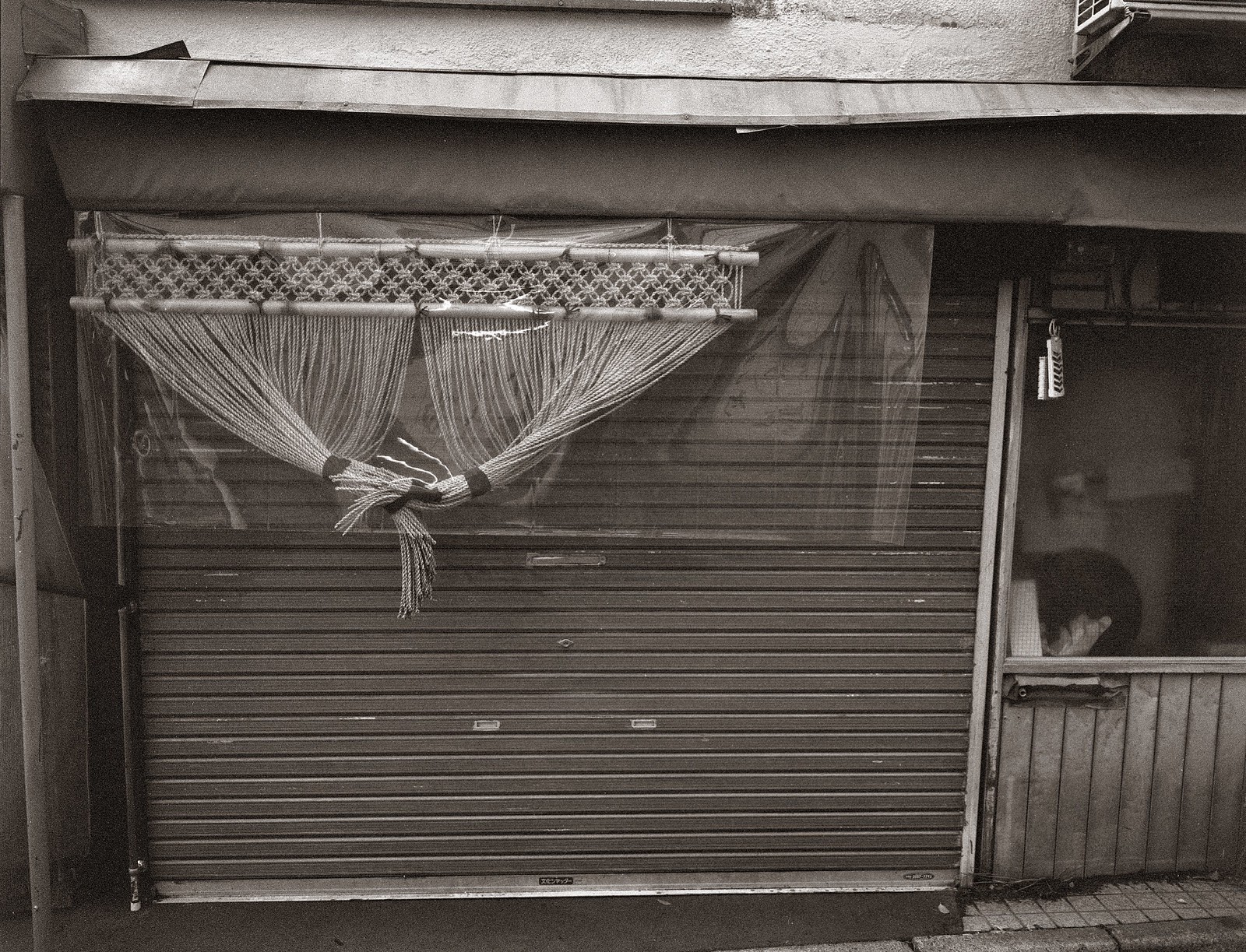
Protection. Nogata, Tokyo, Japan.: photo by efo, 16 August 2016

Protection. Nogata, Tokyo, Japan.: photo by efo, 16 August 2016
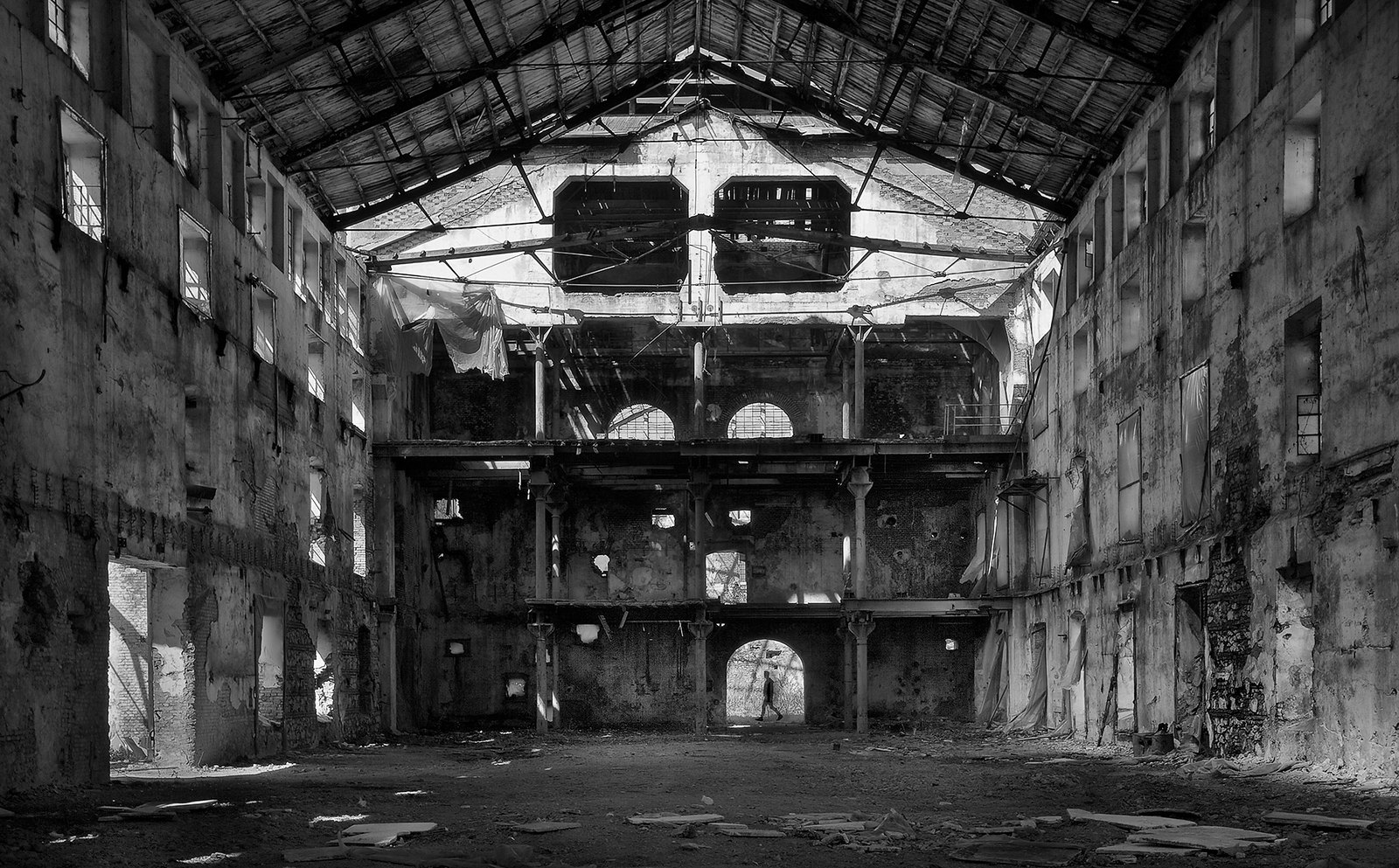
#Precarious, Multivolumetria precaria.: photo by Pierclaudio Duranti, 25 July 2016


#Precarious, Multivolumetria precaria.: photo by Pierclaudio Duranti, 25 July 2016


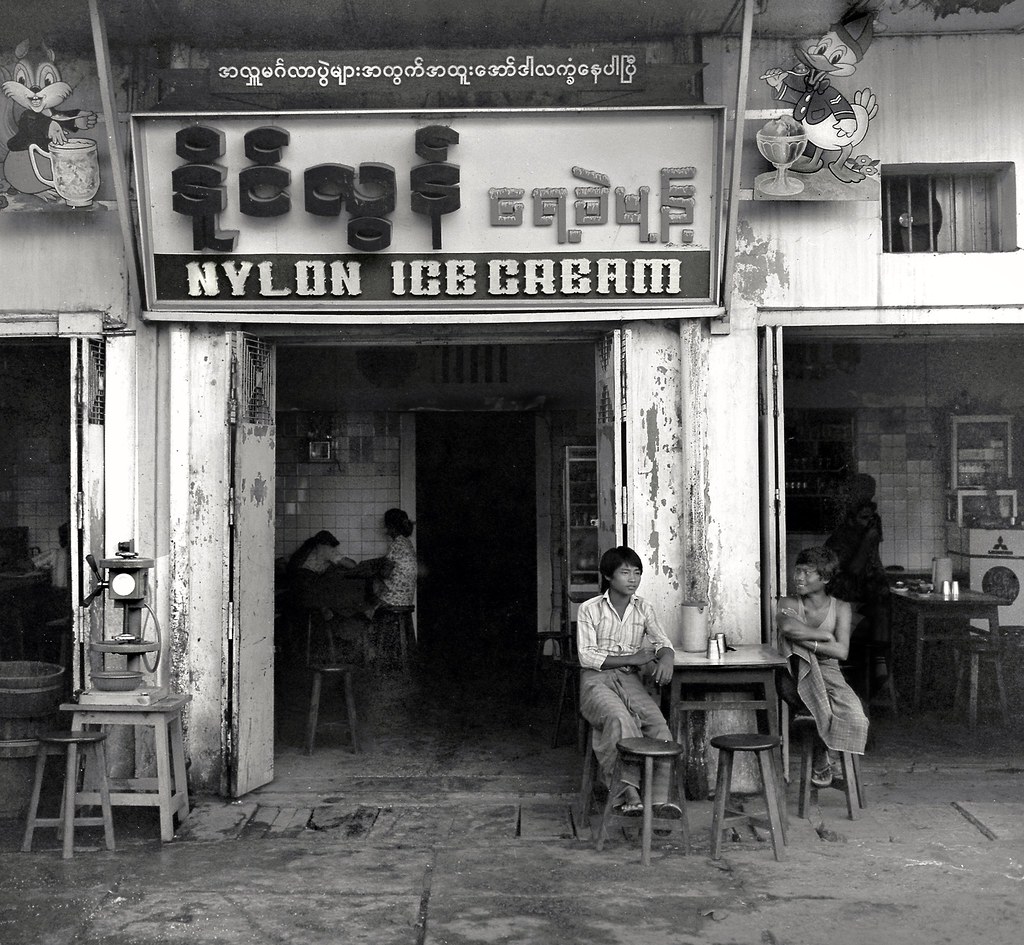



3 comments:
unfortunately, the answer to the question is brutally simple: arrest
and punish the thinker who speaks it in the broad light of day...
¿puede decirse algo tan fuerte de forma tan delicada ?...sí, se puede
Thanks very much a.w. and sandra.
Yes, that's the standard answer, arrest and punish the thinker who dares speak her/his mind in the broad light of day.
That form of thought repression however seems to work most effectively in places where the thinkers most fear they may might have something to lose by so speaking.
And yes Sandra, I do believe that the original wonder of the poem is such that, in it, the most powerful movements of feeling and spirit may occur in a very small and delicate place.
For Kashmiris now, whether at home in their native place, or in exile, poetry is an instrument in a freedom struggle; the historical meaning of this struggle pervades their poems, and underlies what the poems have to say about the conditions from which the longing for freedom begins.
Uzma Falak of Srinagar speaks of the ground from which her poetry arises:
"Mourning not only as a way of coming to terms with loss, but as commemoration and celebration as well. Mourning as loving.
"My poems are an asylum I seek, away from the multiple exiles we live in, as well a journey to and away from a void which engulfs our existence. It is also in Kundera’s words, a site of struggle of memory against forgetting. My poems allow me to be a witness, a memoirist, and a wanderer. Yearning, loss, memory, dissent, nostalgia, resistance to institutionalised forgetfulness, are some recurring themes in my works.
"Writing should reflect and echo the streets. It should register and encapsulate the flight of the stones, the essence of sacrifice of the martyrs and of those who long for martyrdom, of the everyday feeling of loss and resilience,
"Longing initiates writing but writing also destroys longing (which, for me, is essential to live). How does one deal with this? Should we destroy the image and the text in a world which renders these meaningless everyday? Should 'poetry' exist only in the 'written'? Loss slows down the pace of our lives and yet the world moves on, speeds past us; so, in a way, the writing from Kashmir is also a site of this struggle, this friction."
Kashmiris are acutely aware of the fact that their struggle is unknown to almost everyone in the West, and that nobody appears very interested in finding out, sorting the history and the players. But it doesn't take an overwhelming amount of research to learn. Unfortunately the concept of Occupation of one small, "weak" yet stubbornly and determinedly independent country by a stronger, dominating alien nation-state is still affirmed, implicitly or openly, by much of the world (how else explain what has been happening in Palestine these past 70 years?). In the part of the world where Kashmir is, that is the standard history. The imperialist power which evacuated this part of the world in the years after the second world war left behind a sort of conceptual template. The same horror India suffered from occupation and colonization by the British Empire is being enacted once again now, inflicted quite brutally by India upon Kashmir, much as though the worst of history were determined by fate to return in infinite reiteration, as a sort of karmic reward to the dumbest of all species -- the one bent on destroying the entire planet in order to own it.
Post a Comment